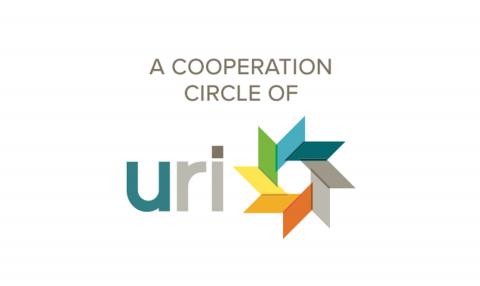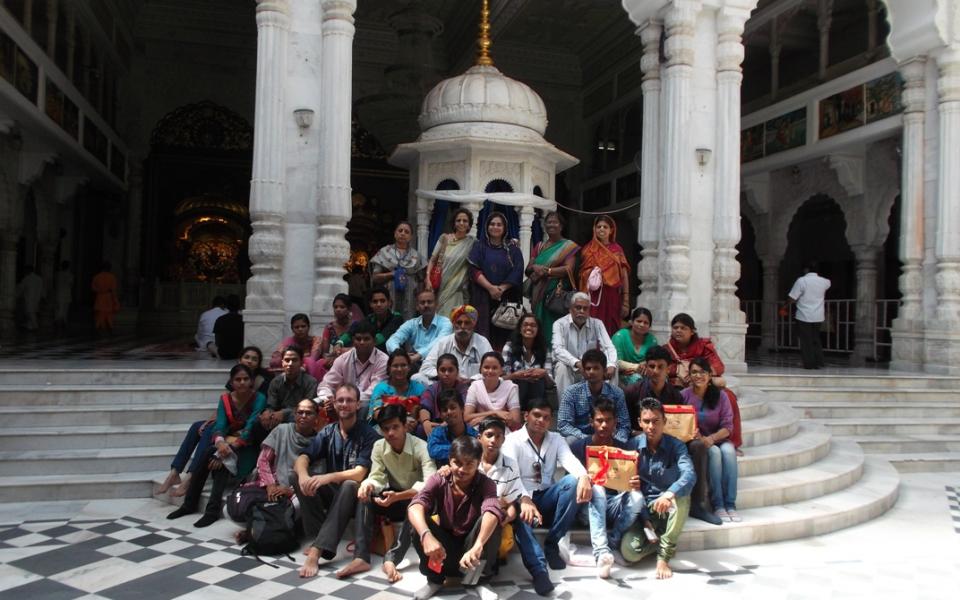
Youth participants, CC leaders and trainers visit Mumbai ISKCON temple on our Immersion Day. Some of our Muslim participants were entering a Hindu temple for the very first time.
I’ve always known URI as a network of peacebuilders connected to each other through common principles, practices and purposes. In West India, interfaith grassroots activists and volunteers use collaborative action to tackle formidable issues. It was exciting to see new and young interfaith activists harnessing the URI platform, along with URI West Zone Regional Coordinator Qutub Jehan Kidwai, for the good of their communities.
Qutub is a strong social justice activist. She brings a unique blend of academic knowledge and grassroots experience to the work that she does. Her dedication has earned her the trust of many in the community. Many Cooperation Circles (CCs) in her zone also emulate a strong sense of social justice in their work.
Matthew, Qutub and I collaboratively facilitated a three-day youth leadership training in Mumbai from September 4-6. This program brought URI members from Maharashtra, Gujarat, Rajasthan, and even Uttar Pradesh together for three days of experiential learning and capacity building.
Looking around the room during the training, I saw an unlikely group of people assembled together. Most of the participants were youth, ages 16–24, and all were from different faiths, speaking in different languages and from very different local contexts, yet all had one thing in common: they were eager to learn from each other and catalyze change in their communities. CC Leaders who accompanied the youth were also present and engaged in the training.
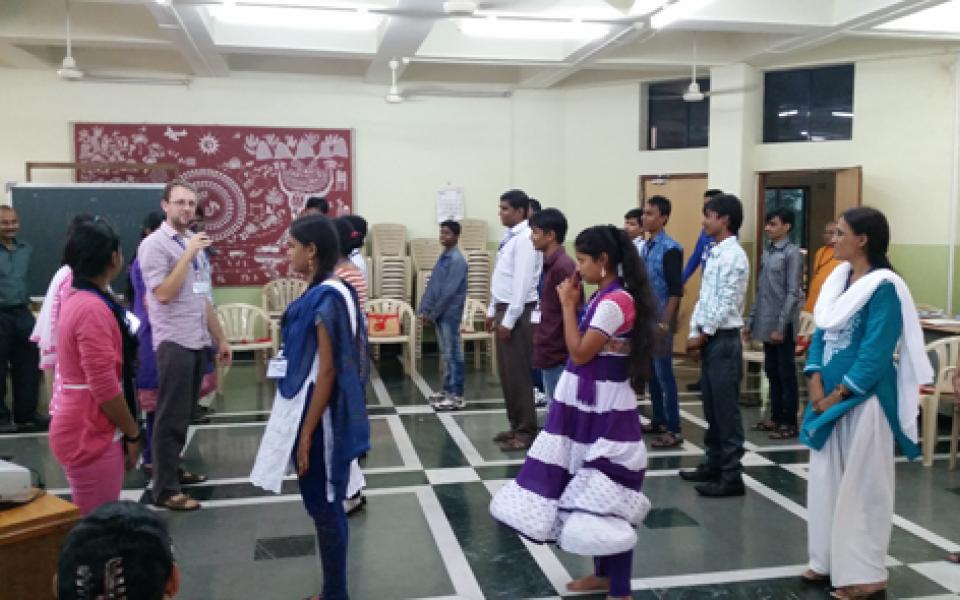
Matthew Youde, Associate Director of Global Programs for Youth Leadership Development, facilitates an interactive exercise on shared leadership.
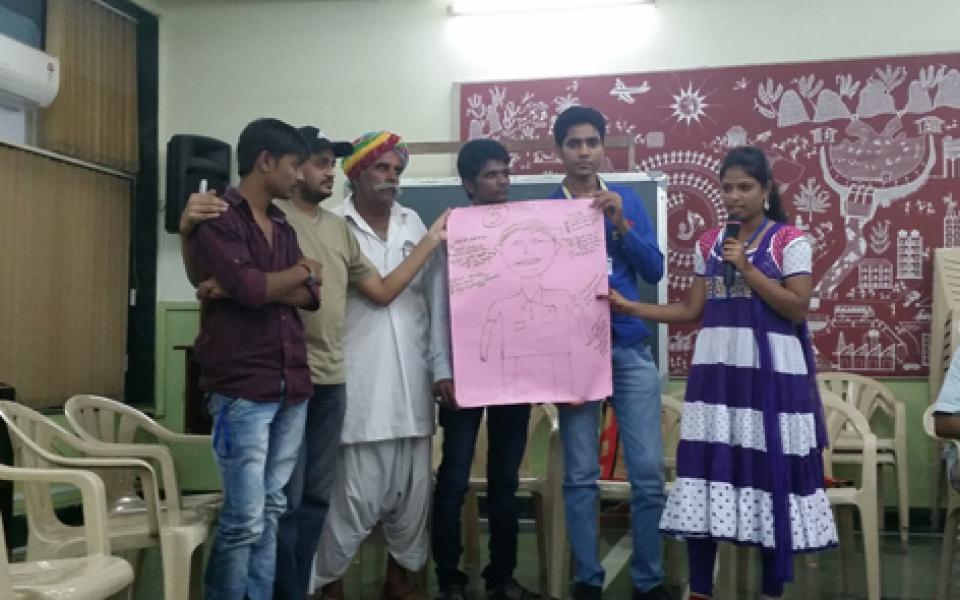
Fozia, 17, from Gujarat, presents her group's discussion on the qualities of a leader.
We spent those three days delving into the ins and outs of grassroots community leadership and the purpose of URI. Youth participants expressed the immediate need for interfaith harmony, and shared stories of success in their communities. A short lecture by Professor Mohammed Arif from the Hindu Benares University gave participants valuable context on the history of religious communalism and violence in India. CC leaders spoke about their experiences with URI and how they have leveraged the network to create positive change in their regions.
One of our objectives was to empower the youth to feel like they could tackle interfaith issues in the community. For me, the highlight of the training was the second day, in which we went through every step of Human-Centered Design, beginning with identifying and analyzing issues in the community, and ending with collaboratively planning a project that utilizes the assets of everyone involved. It was hands-on and high energy.
An important part of identifying issues that resonate with community members is simply getting out and talking to people. We had an interactive session where participants brainstormed interview skills about what to keep in mind when talking to members of the community. The youth were then able to take to the streets in teams of three to ask people about their concerns and opinions. The success of the exercise was evident in the huge smiles and loud chatter of teams as they walked back into the training venue.
Fozia, 17, exclaimed, “Didi (her older sister,) that was so much fun! We interviewed all the people on our list: an auto driver, a street sweeper, a nun, and a store owner. They had so much to say!”
In parts of rural and urban West India, many residential areas are segregated by faith. Women and girls, largely confined to the home, do not have opportunities to speak to members from other faiths. During the evaluation session, Nasim, a CC leader from Roshni CC in Ahmedabad, spoke about the relevance of the interview exercise. She lives in a strictly Muslim neighborhood that emerged after the violent religious riots that took place in Gujarat in 2002. “Our children rarely get the chance to talk to strangers,” she said, “it’s not encouraged. The interview exercise was such an important opportunity, and it was accessible enough for first timers.”
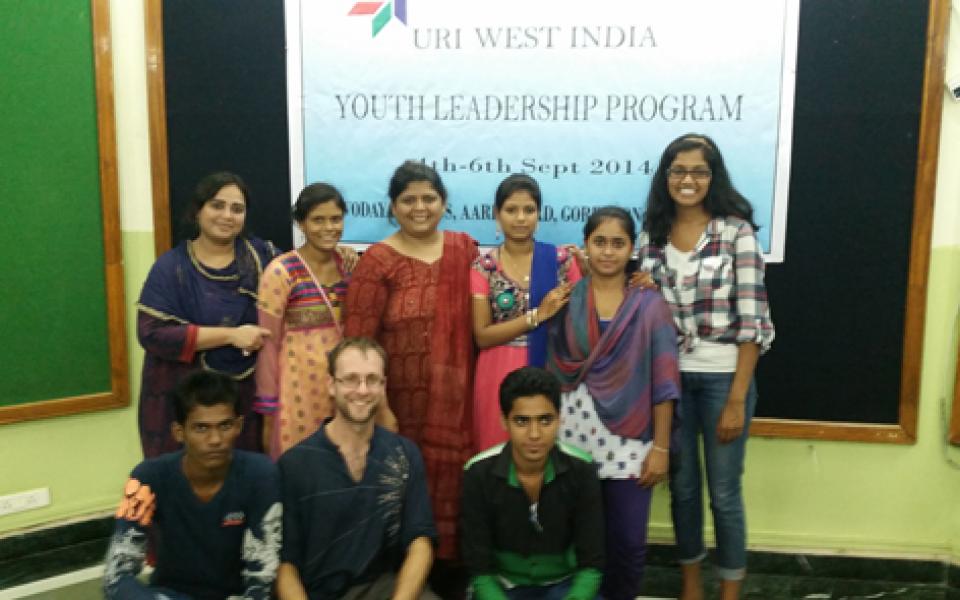
Matt, Qutub, and I pose with participants from Roshni CC on the last day of the training.
We used the insight collected from the interviews for the issue-mapping workshop in the afternoon. Participants were encouraged to think analytically about the causes and effects of social issues, and to map them out visually. What emerged was a sophisticated analysis of complex issues, which served as the foundation for the project-planning exercise.
It was amazing to see not only the youth but also the older CC leaders deeply engaged with the training content.
“Imagine how much more we could be doing right now if we had received this training when we first started,” said Farzana Kazi, a CC leader from Satara, Maharashtra. Farzana’s CC, Gulshan Founation, organizes vocational training for women from different faiths in her locality. Matt and I are excited about the idea of offering this type of training to CC leaders in the future.
The final day was designed to give participants an immersion into the world of social services and community development in Mumbai. We visited a battered women’s shelter that has recently started fighting their client’s cases in court, an interfaith orphanage, and an affordable housing center for tribal peoples. The youth were able to see how their community leadership skills could tangibly be used in the community. They were able to engage these grassroots organizations in candid dialogue about their journeys and challenges.
Participants were inspired and eager to enact their own projects and ideas when they returned home, both independently and through their CCs. On the last night at the training venue, many of us stayed up late talking about our hopes for interfaith harmony in India.
Matt, Qutub, the CC leaders and I are in constant contact with the participants and we are excited to follow their progress and work over the coming months. Stay tuned for more news on this next generation of interfaith leaders!

